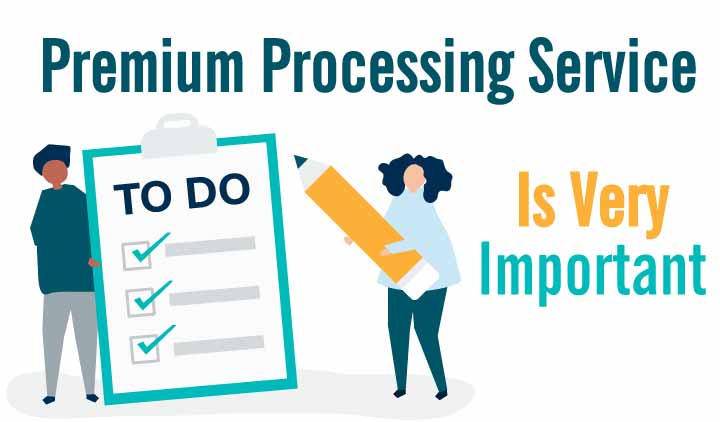Several pros and cons exist surrounding the decision to file for a premium processing service or not. The premium processing service offers expedited processing for certain employment-based petitions or applications.
For those petitions or applications, the U.S. Citizenship and Immigration Services (USCIS) guarantees a 15-calendar day processing, or it refunds the fee. If the fee is repaid, the case continues to receive expedited processing. For those wishing to learn more about the premium processing service, visit here.
“For those who wish to file for the premium processing service, you need to travel outside of the United States, work for a large company, be receiving Level 4 pay and have the appropriate documentation that proves you have specialized knowledge,” indicated Huston immigration attorney Annie Banerjee.
Filing for the premium processing service has other conditions. They include that the project with which a Labor Condition application is filed is about to conclude and the applicant needs the documents to prove a case, that there is an extension in the works with the same company or employer and that by doing so, the worker’s mind is put at ease.
The cons of filing for the premium processing service include that the filing would be a new petition, that the situation involves a transfer, that the applicant is working for a small consulting business and all other individuals the petitioner knows are upgrading to premium.
“The best way to sort out whether or not to file premium is to consider if the case at hand is easily approvable. If it is, do premium,” added Banerjee. “That said, in new cases or those needing additional scrutiny by CIS, avoid premium.”
If a person proceeds with the premium processing service when additional information is needed, the files have a way of backing up and overloading the officers processing them. This leads to pressure to turn things around quickly and thus results in more denials.
If a case is denied, there is no use appealing because, under the current administration, the Administrative Appeals Office (AAO) is rubber-stamping every CIS decision. Although there is the option to fight such a decision in federal court, it does cost time and money.
Premium processing for H-1B petitions was offered in two phases during FY 2020, May 20 and June 10, to allow CIS to manage the process without implementing a full suspension as done in prior years. The May phase included H-1B petitions asking for a change of status, and the June phase included all other FY 2020 petitions.
Source: – https://bit.ly/30VOKrP
Disclaimer: – https://bit.ly/2S00nLJ
SUBSCRIBE TO OUR LATEST UPDATES
[newsletter_signup_form id=1]

